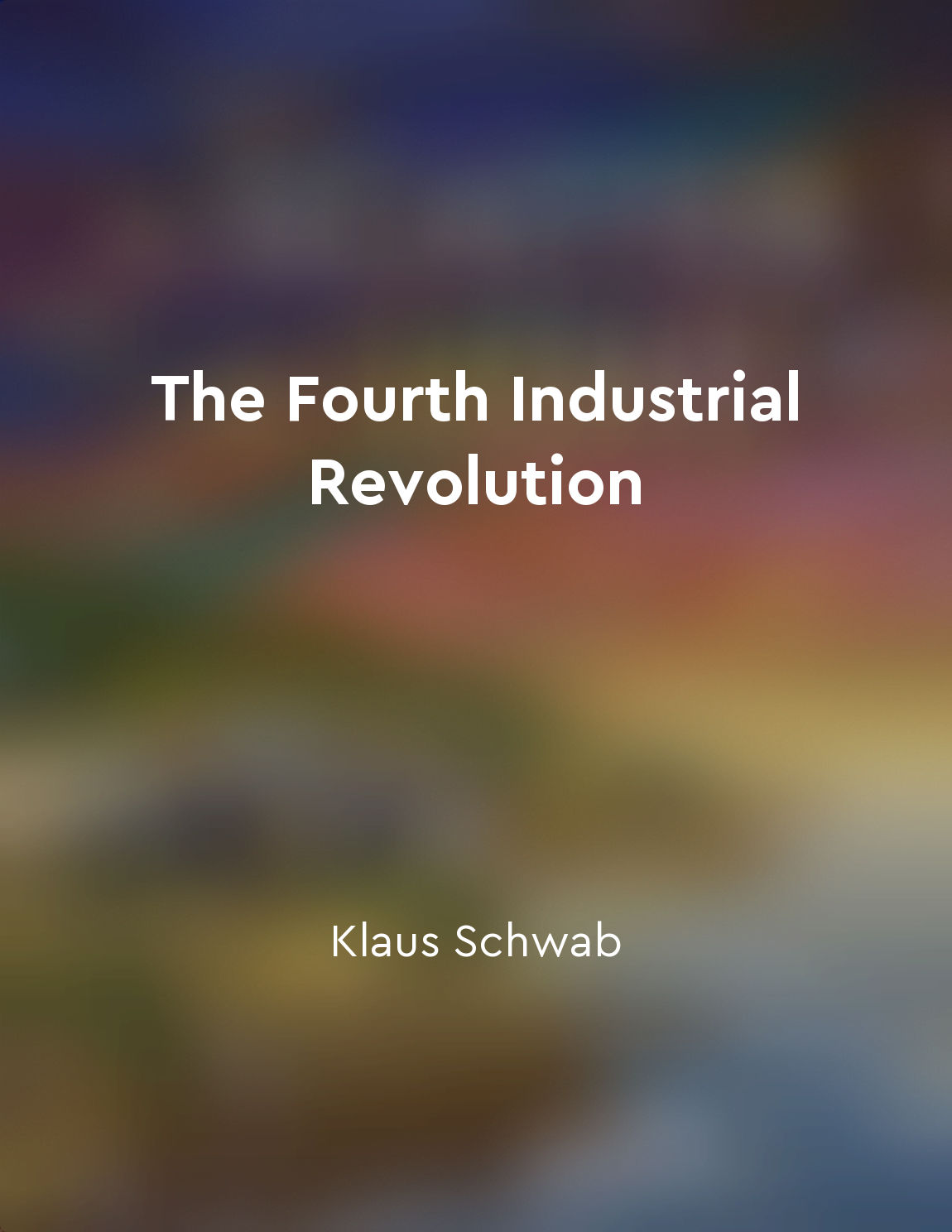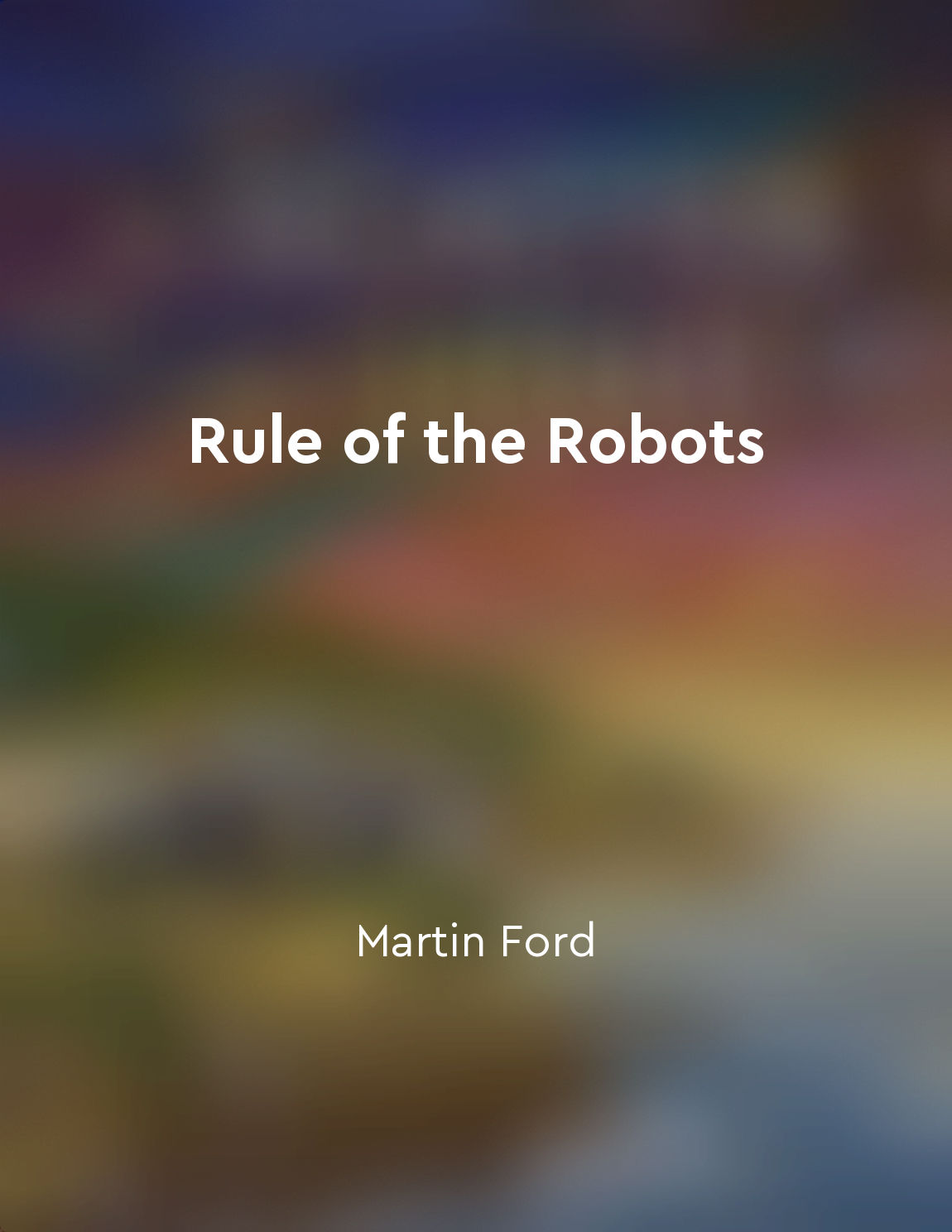The rise of AI and automation is reshaping the job market, leading to unprecedented levels of inequality from "summary" of Homo Deus by Yuval N. Harari
As artificial intelligence and automation continue to advance, they are fundamentally transforming the job market. Traditional jobs that were once performed by humans are now being taken over by machines, leading to a significant shift in the employment landscape. This shift is not only affecting the type of work available but also the distribution of wealth and resources within society. With the rise of AI and automation, certain skills and professions are becoming obsolete, while others are in high demand. This has created a divide between those who have the necessary skills to thrive in the new economy and those who do not. As a result, we are witnessing unprecedented levels of inequality, with a small elite benefiting from the advancements in technology while a large portion of the population struggles to find meaningful employment. The concentration of wealth and power in the hands of a few is exacerbating existing social and economic disparities. Those who have access to the latest technology and the resources to adapt to the changing job market are able to secure lucrative positions, while others are left behind, facing unemployment or underemployment. This widening gap between the haves and the have-nots is reshaping our society in profound ways. Moreover, the impact of AI and automation on the job market is not limited to individual workers but extends to entire industries and sectors. As machines become more efficient and cost-effective than human labor, companies are increasingly turning to automation to streamline their operations. This trend is further accelerating the displacement of workers and the erosion of job opportunities for those who are unable to compete with machines. In light of these developments, it is crucial for policymakers, businesses, and individuals to address the challenges posed by the rise of AI and automation. Strategies must be developed to ensure that the benefits of technological advancements are shared equitably among all members of society. Failure to do so could lead to further polarization, social unrest, and economic instability in the future.Similar Posts

The ideal of a utopian society is within reach, but at what cost?
The dream of a utopian society has captured human imagination for centuries. People have envisioned a world where everyone is e...
AI technologies are being used in a wide range of industries from healthcare to finance
AI technologies have already made significant inroads into a wide range of industries, transforming the way business is conduct...
Technology is advancing rapidly
The pace at which technology is progressing is truly remarkable. Every day, new innovations are being introduced that push the ...

The pace of change is accelerating, requiring agile responses from individuals and organizations
The speed at which change is taking place in today's world is unprecedented. This rapid pace is not only demanding quick respon...
Ethical considerations must be at the forefront of AI development
When it comes to the development of artificial intelligence (AI), one cannot overemphasize the importance of ethical considerat...
The benefits of technological progress are not evenly distributed
The digital revolution has brought about immense technological progress in recent years. We are living in a time of unprecedent...

Social policies must be reimagined to address the impact of automation on jobs
As automation continues to advance, it is becoming clear that the impact on jobs will be significant. Traditional employment op...

Reskilling and upskilling programs are essential to bridge the gap between existing and future job roles
As we navigate the rapid changes brought about by the Fourth Industrial Revolution, it becomes increasingly clear that traditio...

Wealth inequality could widen as automation reduces the need for human labor
As automation continues to advance, there is a growing concern that the gap between the wealthy and the rest of society could w...
